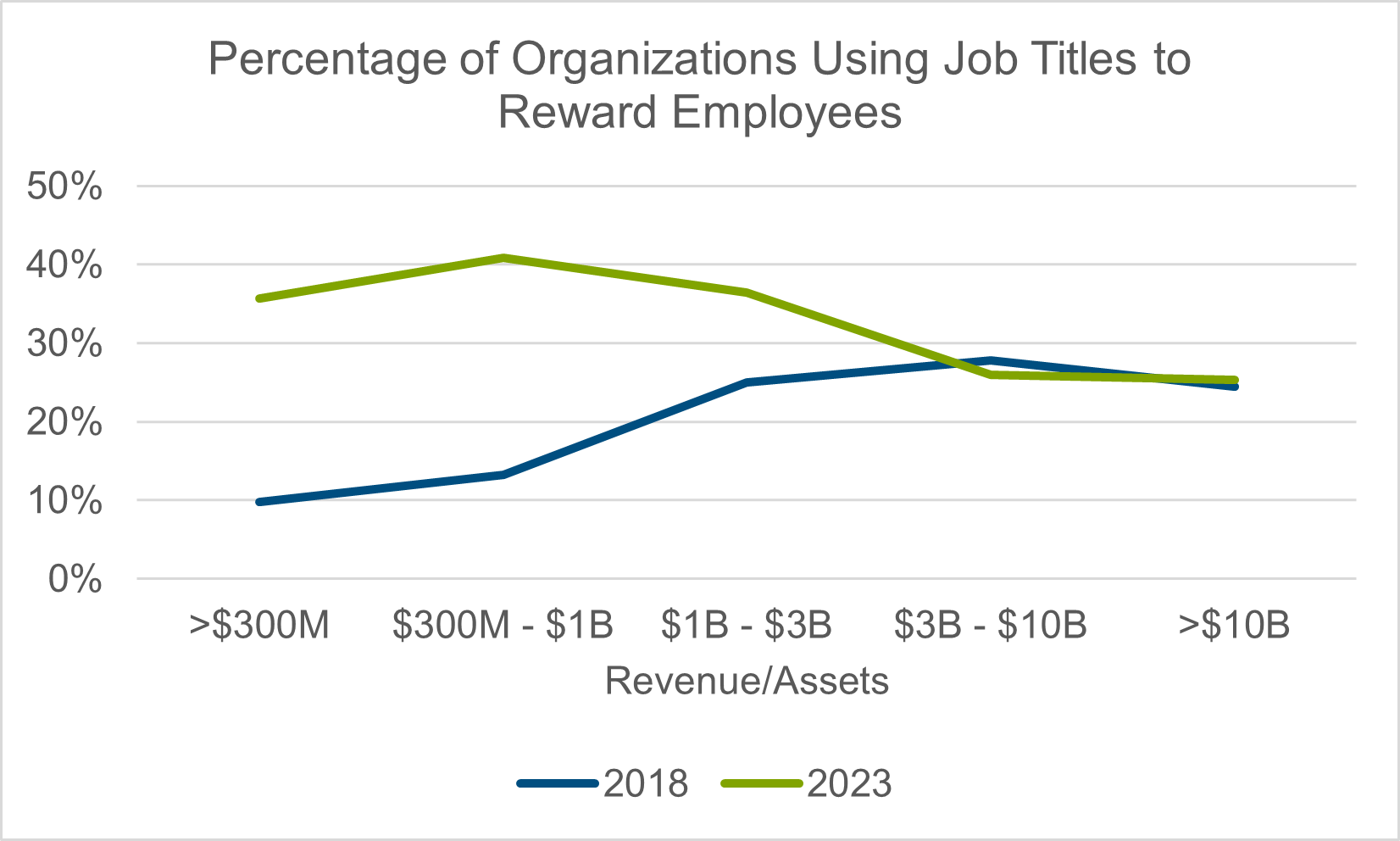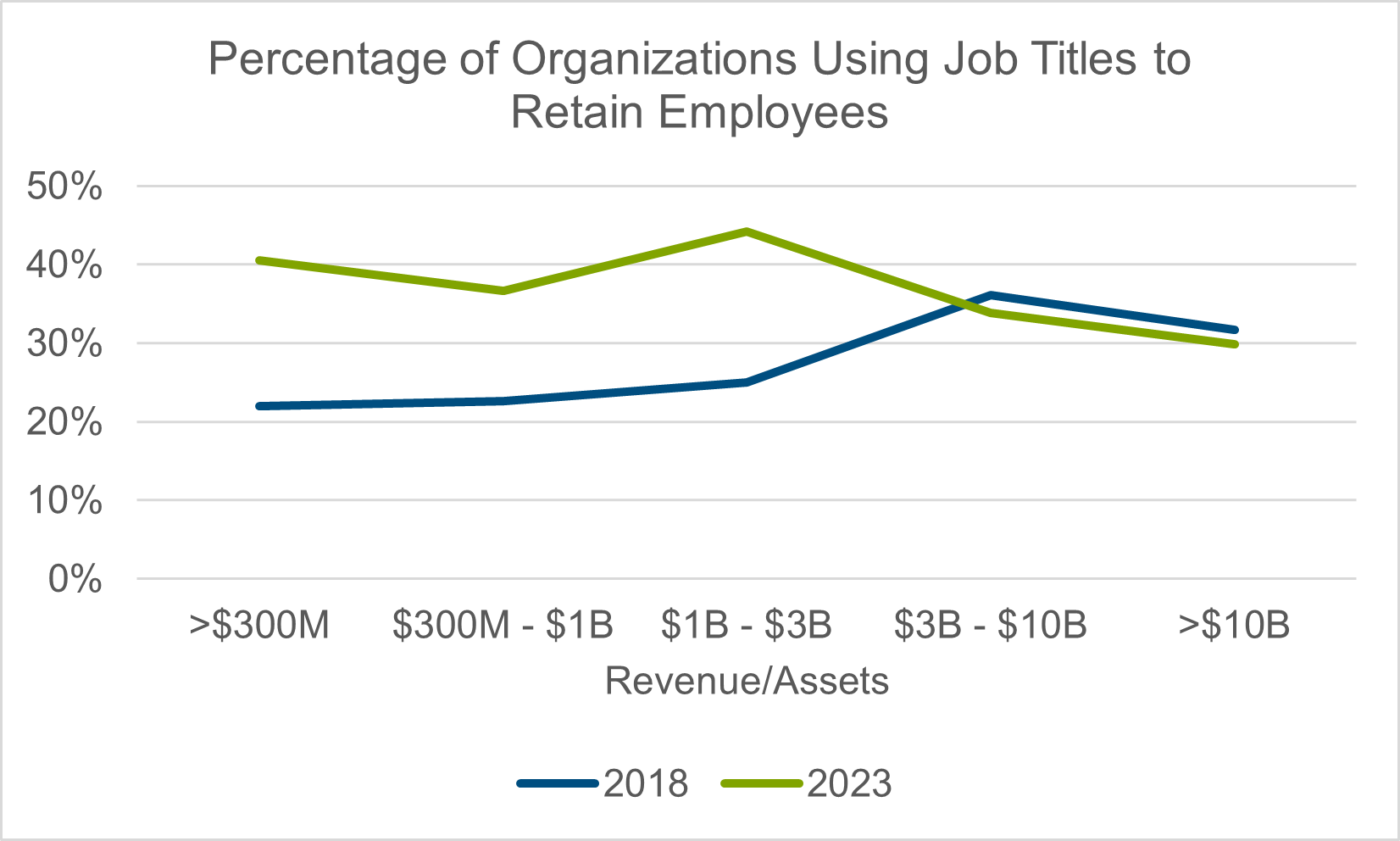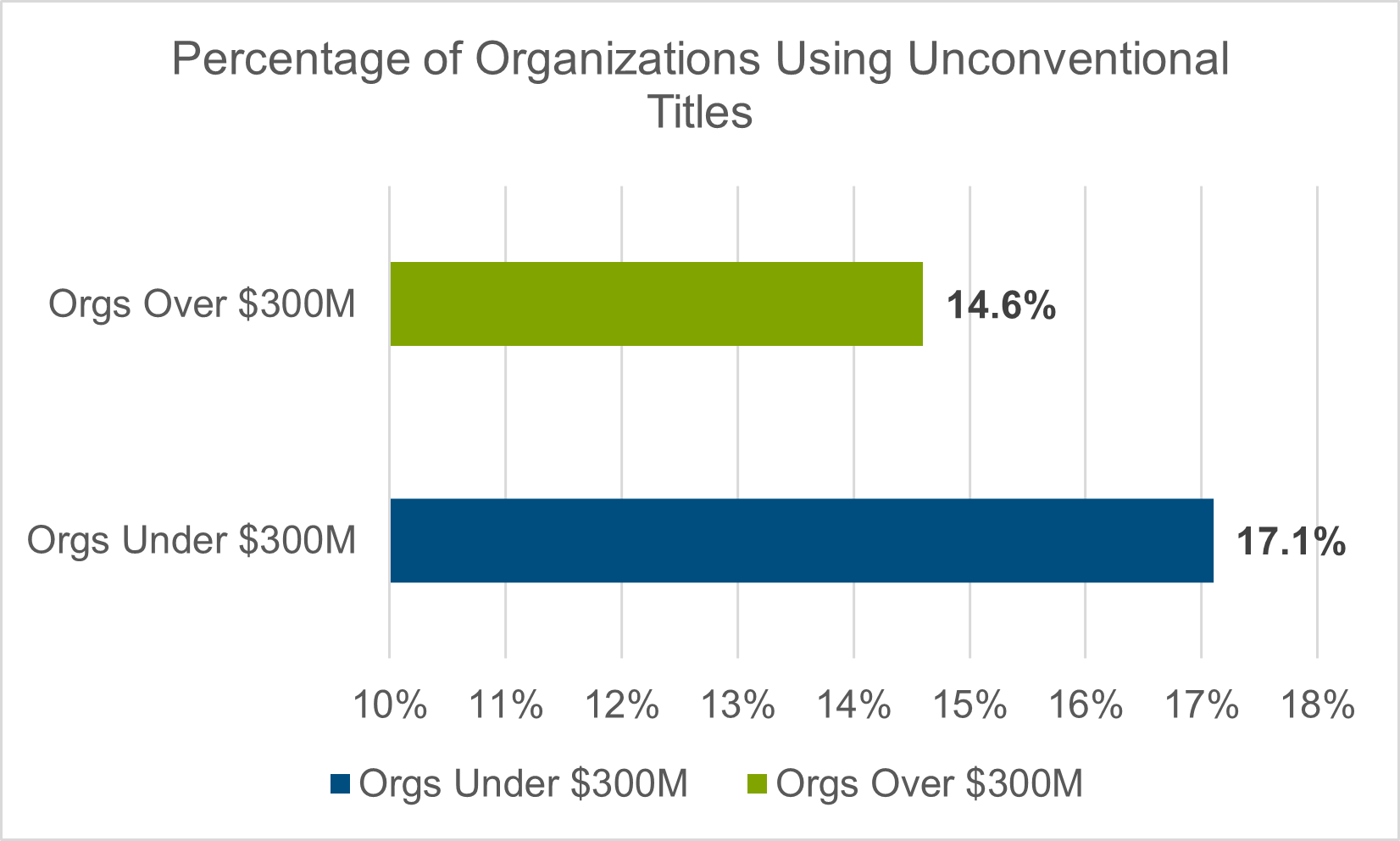
Advisor Blog | Jun 2023 |
Job Titling Practices: A Competitive Advantage for Small and Nimble Organizations
Smaller organizations have identified the use of job titles as an additional tool in the effort to reward and retain talent.
In a competitive marketplace, with compensation packages of varying structures and complexities, organized and intentional job titling practices can be a concrete way for firms to differentiate themselves from competitors.
The response rate to Pearl Meyer’s 2023 Job Titling Practices Survey demonstrates a tremendous appetite for fresh and relevant data surrounding titling. The survey grew by 87% since the last edition published in 2018, with 404 and 219 participants respectively. One of the most noteworthy trends from the report is that smaller organizations have significantly increased the rate at which they use job titles to reward and retain employees compared to their larger counterparts.


The number of organizations with revenue below $3 billion that use job titles to reward and retain employees has significantly increased in the last five years. However, among firms over $3 billion, there is virtually no increase in title usage aimed at rewarding and retaining employees. It’s evident that many smaller organizations have identified job titling practices as an additional tool in the effort to reward and retain talent. This can be an attractive approach for organizations without the cash resources to compete with their larger competitors, as it is a no-cost approach to this issue.
This is further evidenced by the report’s findings surrounding unconventional title usage. We have found that 17.1% of firms below $300 million have used unconventional titles and only 14.6% of firms over $300 million have used them. This is just one of the many subjects covered in the 2023 survey’s “hot topics” section, which was created based on current talent management questions Pearl Meyer consultants have been fielding recently.

While implementing unconventional titles is a creative and unique approach to the retention problem, it’s clear that there is also an important balance to strike here. The overwhelming majority of organizations, across all sizes and industries indicate that job titles are intended to accurately reflect an employee’s role within the organization. This is lockstep with the findings from the 2018 report in which 94% of organizations indicated this and in 2023 essentially the same number, 93%, indicated this.
Ensuring that new unconventional titles are not ambiguous and do not obscure an employee’s role and responsibilities is critical for organizations and the employee. Furthermore, many organizations rely on employee job titles to determine eligibility for certain compensation programs and perquisites. There must be care taken when implementing new titles to make sure that they are integrated smoothly into an organization’s existing job architecture and that they do not create uncertainty around organizational policy or career progression.
The 2023 Job Titling Practices Survey is currently available for purchase here. It includes the most up to date data on the rationales for using titles, differences between external and internal title use, titling practices for foreign and acquired organizations, how new titles are communicated, policies on business card use, and a new addendum on hot topics in job titling.


